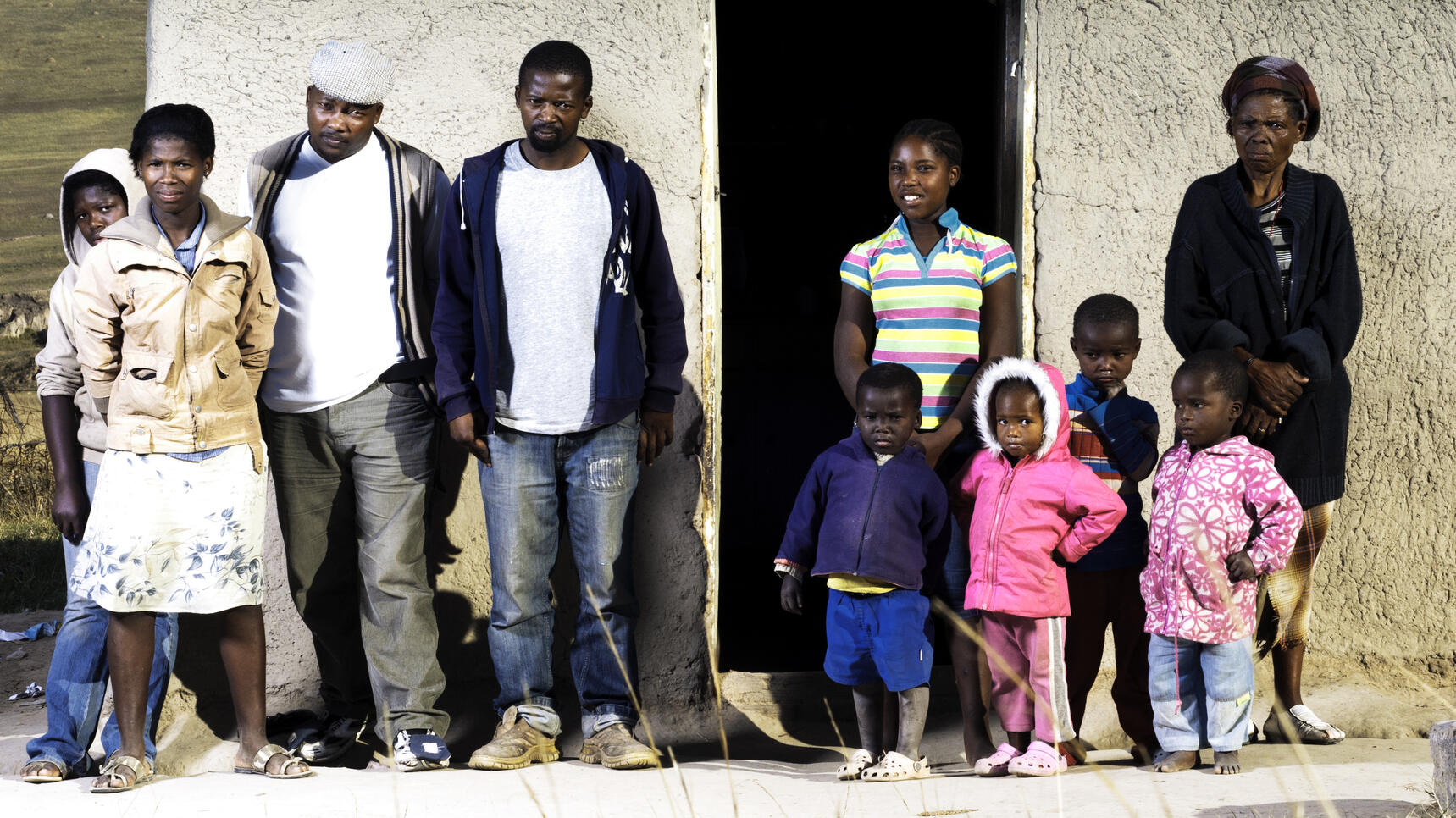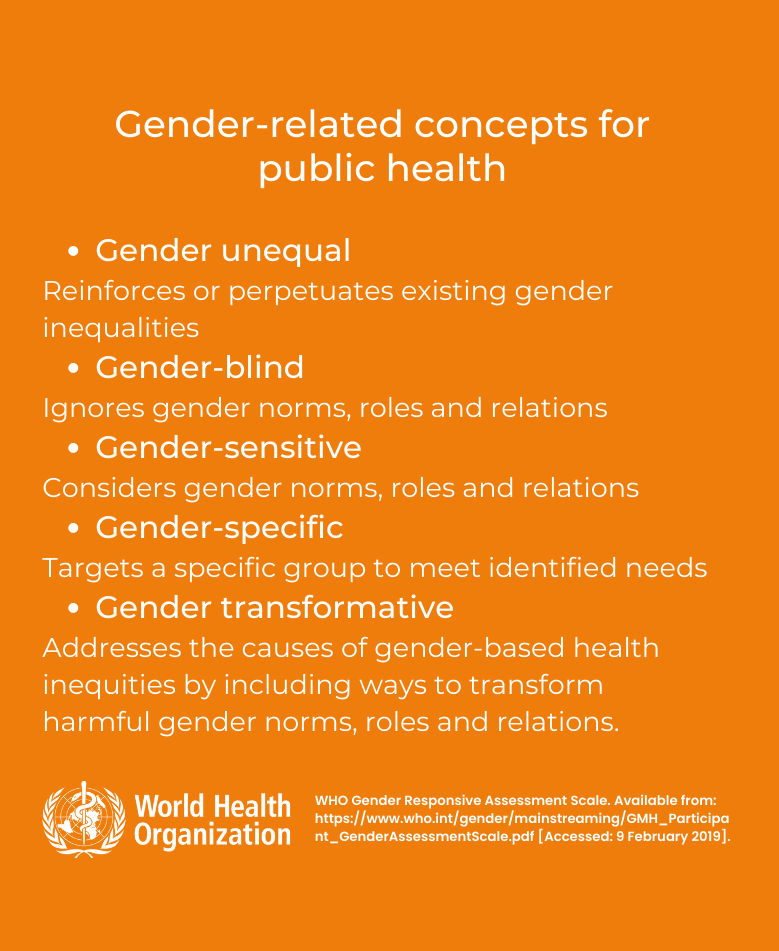
TB is among the deadliest infectious diseases across the world. Globally, an estimated 10 million people fell ill with TB in 2019. Of these, nearly 3 million people were not detected or officially notified and did not receive the care they needed. This denies those affected the right to health and wellbeing and also puts others at risk. Gender has a powerful influence on health and wellbeing, intersecting with other individual, social, and economic factors to impact on people’s right to health and equitable access to quality healthcare. It is clear that gender-responsive approaches are needed across the spectrum of TB prevention, diagnosis, treatment and care, yet there is a lack of evidence to support the development and implementation of such strategies. Without innovative, evidence-informed solutions, we will fail to leave no-one behind and realise health for all in the Sustainable Development Goals. The clock is ticking.

On International Women’s Day 2021, at a World Health Organization (WHO) and Global Coalition of Tuberculosis (TB) Activists (GCTA) webinar that discussed Gender-Sensitive & Equitable Response to End TB, women leaders in global health made a compelling case for a collective, inclusive, person-centred response to the TB pandemic. To achieve the highest attainable standard of health and well-being, the rights of every individual, irrespective of their gender identity, must be protected and promoted.
In the global health community, there is wide recognition that gender whether female, male, or non-binary, intersects with other individual, social, economic and structural factors determining health. As such, gender is a critical component of any strategy to End TB. People across the spectrum of gender identities have to be part of the process of responding to different gendered health needs to increase equitable health outcomes for all.
Impactful gender pathways to health are needed in the global response to TB. This infectious disease is preventable and curable, yet globally an estimated 10 million people developed TB in 2019. TB affects all genders with direct consequences on health but also with tremendous personal, familial, social, economic, and societal impact. In 2019, men accounted for 56% of the people who developed TB; women 32% and children (under 15 years of age) 12%. The effects on non-binary individuals are unknown because these data are not collected. Yet people of all genders need appropriate pathways to prevention, diagnosis and care.
The world has committed to the End TB Strategy, but progress has been slow and is further challenged by the COVID-19 pandemic. A one-size-fits-all approach to TB does not respond to the particular characteristics, circumstances or pressures that people of different genders face in seeking help at an early stage, before the disease has progressed to cause serious illness, has caused catastrophic costs for households or other serious consequences for themselves and the wider community.
“Cultural norms, inequalities, stigma and discrimination, and lack of integration of TB services with other gender-specific health services create barriers for men, women, and individuals with non-binary gender identities. If people are unable to access diagnosis or treatment, for different gender-related reasons, their illness causes tremendous pressures and unintended consequences for them, their families and the wider community.”
Prof. Sarah Ssali Associate Professor and Dean of the School of Gender Studies at Makerere University and chair of LIGHT’s Gender and Equity Working Group
To accelerate our efforts to end TB, the global TB community needs a much more holistic approach that considers the differences between and the needs of all genders in the design and differentiation of pathways to high quality care. Despite recognising the need for more gender-responsive approaches, including at the United Nations High Level Meeting on TB in 2018, decision-makers are now faced with a lack of evidence about what works and, in the context of increasingly constrained resources for health, which approaches are most cost-effective. The lack of evidence at the local level makes informed choices difficult when considering the most effective and efficient ways to offer prevention, diagnosis and treatment to citizens.
The LIGHT (Leaving no-one behind: transforming Gendered pathways to Health for TB) research consortium, launched in May 2020, is generating new evidence on the effectiveness of different gender-sensitive approaches in Kenya, Malawi, Nigeria and Uganda. Through focused efforts to support global and national policy environments, LIGHT’s research teams in Africa and the UK aims to increase gender equitable access to quality TB care to improve treatment outcomes and prevent ongoing transmission in the community.
In low- and middle-income countries, two out of every three adults with undiagnosed infectious TB are men. To address this, LIGHT will specifically focus on the development of gender-sensitive and gender-transformative approaches to engage men across the life course in urban settings.
“Given the high levels of undiagnosed infectious TB in men and the scarce evidence on effective strategies to reach them, we expect these approaches to amplify the benefits of technical developments in TB diagnostics and treatment -- including better access to quality-assured nucleic acid amplification tests and digital chest X-ray and shortened TB treatment --- to reduce death and disability caused by TB disease across the world, in men, women, and children.”
Prof. Liz Corbett, Professor of Tropical Epidemiology at the London School of Hygiene & Tropical Medicine and LIGHT Senior Scientist
We look forward to LIGHT contributing to the body of evidence for policymakers in Africa and globally to develop more effective approaches that encompass gender-sensitive and gender-transformative pathways towards health as a human right for all.